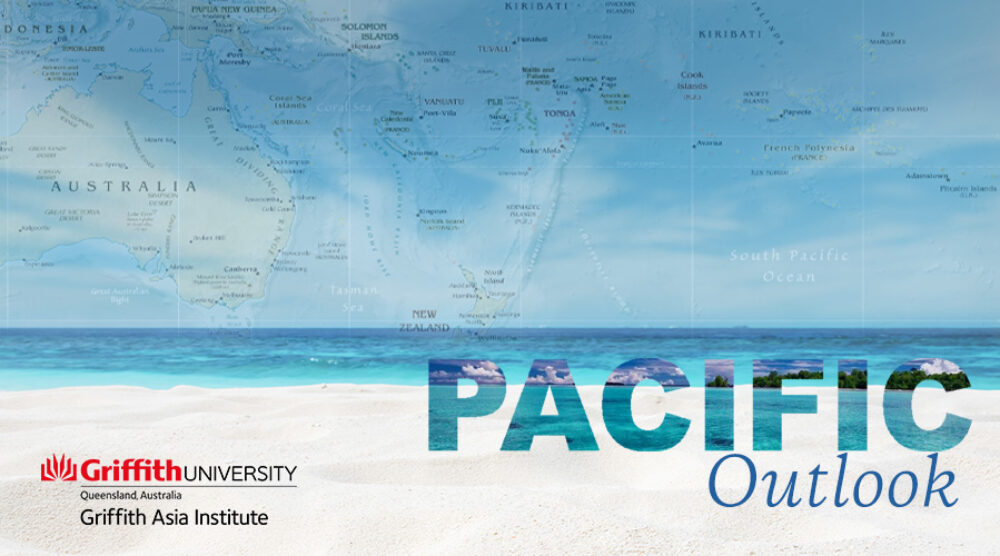TESS NEWTON CAIN |
Japanese Foreign Minister visits the region
The stream of high-level visitors to the Pacific shows no sign of letting up. Most recently, Foreign Minister Hayashi Yoshimasa of Japan has visited both Fiji and Palau.
In Fiji, Minister Hayashi met with Prime Minister (and Foreign Minister) Bainimarama. He also met with Henry Puna, the Secretary-General of the Pacific Islands Forum. A civil society grouping, the Pacific Collective on Nuclear Issues, used the visit to call on the government of Japan to reconsider discharging treated water from the Fukushima nuclear plant into the Pacific ocean.
In Palau, Minister Hayashi met with President Surangel Whipps Jr and attended the opening of a newly renovated airport that his government had supported. The two leaders expressed their concerns about a recently signed security agreement between Solomon Islands and China.
Minister Hayashi also used these meetings to express Japan’s condemnation of Russia’s invasion of Ukraine.
Continuing concern over Solomon Islands’ security agreement with China
The levels of concern in Australia and elsewhere relating to the recently signed security agreement between Solomon Islands and China are yet to diminish.
Prime Minister Sogavare of Solomon Islands used a speech in that country’s Parliament to once again criticise what he considers to be condescending attitudes about his government’s ability to manage relationships with other countries.
Foreign Minister Jeremiah Manele has commenced a regional tour to explain the agreement to Pacific leaders. Whilst in transit in Brisbane he met with his Australian counterpart, Marise Payne. During that meeting, Minister Manele reiterated that his country considers Australia to be their number one security partner.
Meanwhile, the leader of the Oppostion in Solomon Islands, Mathew Wale, has criticised the Foreign Minister’s tour, saying that discussions with regional leaders should have taken place prior to the agreement being signed and not afterwards.
Vanuatu International Court of Justice campaign gains support
Vanuatu is continuing to progress its campaign to obtain an Advisory Opinion (AO) from the International Court of Justice (ICJ) on the rights of people who are affected by climate change. In order to seek this opinion from the Court, Vanuatu will take the proposal to the UN General Assembly in September. A majority of UN members will need to agree to the proposal for it to proceed.
Support for this initiative is building. Last week a global alliance of civil society groups was launched to advocate for the proposal. The alliance comprises over 1500 organisations who work in 130 countries across the globe. They are led by established Pacific activist groups, including the Pacific Climate Action Network.
In March of this year, the heads of government in the Caribbean Community (CARICOM) indicated that they would support Vanuatu.
COVID-19 updates
Across the region, the impacts of COVID-19 continue to be felt.
In several countries, the Omicron wave has seen a large number of cases. However, given that this strain is less severe than others, the number of deaths has remained low. Kiribati has recorded 3,000 cases and 23 deaths. In Vanuatu, there have been 8,023 cases recorded this year, with fourteen deaths.
Vaccination programmes are continuing to be rolled out. However, progress is not consistent either across the region or within individual countries. In some countries, such as Vanuatu, there are challenges with getting vaccinations delivered into rural and remote areas. Misinformation about vaccines continues to be a barrier to fuller coverage.
Meanwhile, countries are looking to easing restrictions for their citizens and, in some cases, planning for a full reopening of their borders. This is expected to bring some economic relief, especially for tourism businesses. However, anxiety about the health impacts remains in many communities.
AUTHOR
Tess Newton Cain is an Adjunct Associate Professor at the Griffith Asia Institute and project lead of the Pacific Hub.








